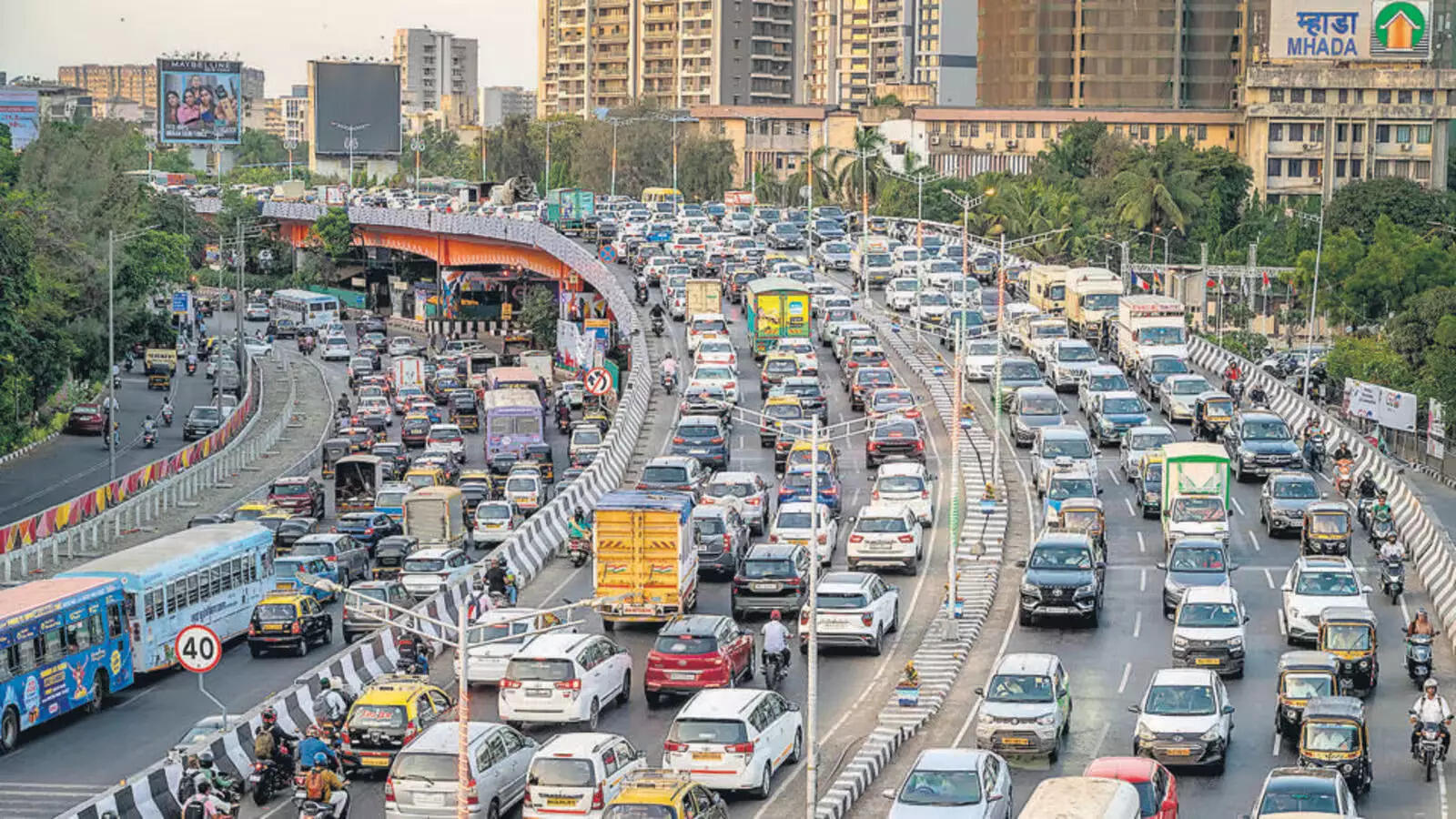
While there are virtually no curbs on the construction industry in Mumbai to build wherever they want, the auto industry (private cars), too, has no restrictions or curbs with the vehicle population exploding.
Experts said that with city roads having 13 lakh private cars, which is among a total 45 lakh registered vehicles as on date, the roads are bursting at the seams. Government authorities may have enforced new BS-VI emission norms for vehicles, but there is no cap on the number of cars that can be registered and this could be disastrous in near future, they feared.
Experts cited examples about the vehicle restrictions in some global cities like Singapore and London where the government encourages public transport and has kept the growth of cars under strict check. This has resulted in decongesting roads besides controlling air and noise pollution.
China also has restricted the use of cars in certain areas of major cities such as Shanghai and Beijing to prevent roads from being choked. Besides regular restrictions on plying of cars, the Chinese government also imposes car ownership control in big cities from time to time.
Chicago and Los Angeles had in the recent past commissioned studies on congestion pricing and how to implement it to reduce the number of cars on roads.
The initiatives in New York and San Francisco to ban cars from main streets have boosted bus ridership and reduced commuting times for all vehicles.
Madrid and New York are among other global cities that are taking steps to ensure fewer cars on the roads. Amsterdam and Oslo are moving fast to becoming car-free cities. Transport expert Vivek Pai suggested that in Mumbai, the increase in car registrations should be controlled by RTO by following the Singapore model wherein there isa lottery system for getting a permit to purchase a new car.
In Singapore, he says, there is a lottery for getting a permit to purchase a new car and also one needs to show ‘proof of parking.’
“In a few European cities, the expense to park a car in business districts is more than the cost of maintaining the car every month. This is a huge deterrent and a similar experiment can be done in Mumbai to reduce the number of cars arriving in business hubs,” he added.
Public policy (transportation) analyst Paresh Rawal said that the car to road ratio was very skewed for Mumbai and having more cars leads to problems such as congestion, pollution and parking woes. “There is a dearth of car parking in the city at a time when for every car, there will be two parking spaces required — one at home and another near office. It is high time we impose peak-hour congestion charges/tax like the one in Central London wherein one pays exorbitant fees to enter the business hubs. Office-goers should be dissuaded from bringing private cars on road and encouraged to switch to public transport for daily commute. The state should provide them with more AC trains, Metro service and AC buses with good frequency,” he demanded.
For every car purchased in Singapore, apart from the vehicle’s on-road price, you need to buy a Certificate of Entitlement (CoE) from the government. Sources said that the cost of CoE to own a car in Singapore is in the range of 1.04 lakh to 1.46 lakh Singapore dollars (INR 64 lakh to INR 89 lakh) — which is a huge amount. The country had introduced this 10-year CoE system as an anti-congestion measure.
A transport expert said that in Singapore, the COE scheme means that it is difficult for an ordinary Singaporean to afford a car unlike in Mumbai where one can get it for as low as INR 4-5 lakh.
“The objective of the Singapore government is to restrict the sale of private cars and encourage citizens to use the public transport system, considered to be one of the best in the world,” he said. In comparison, in Mumbai, citizens opt for cars and bikes in the absence of a good public transport system, pointed out activist G R Vora. “Unless you have more AC buses with better frequency, a strong Metro network connecting every nook and corner of the city, and trains with more carrying capacity, including more AC trains, citizens cannot be dissuaded from purchasing new cars, ” he added.
As for the city’s vehicle population, the past five years have seen a 7 lakh increase in vehicles, of which nearly 2 lakh were registered in less than the first 10 months of this year.

